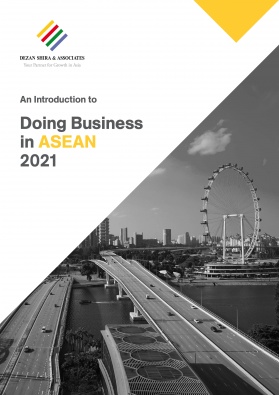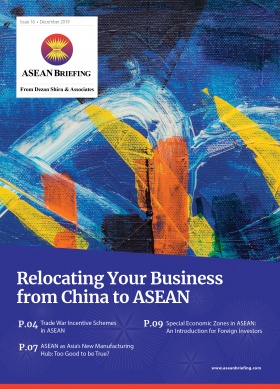US Extends GSP Status for Indonesia
- The US extended Indonesia’s Generalized System of Preference (GSP) status in early November 2020, meaning thousands of Indonesian exports to the US are duty-free.
- The US is seeking closer ties with Indonesia, particularly as tensions increase in the South China Sea.
- Indonesia exported more than US$2 billion worth of products under GSP exemptions, and both countries are looking to increase bilateral trade to US$60 billion within the next five years.
In early November 2020, the US extended Indonesia’s Generalized System of Preference (GSP) status, following a visit from US Secretary of State Mike Pompeo to the country on October 29.
The extension of the GSP means there are no duties on thousands of products for Indonesian export. Of Indonesia’s total US$20.1 billion of exports to the US in 2019, some 13 percent, or US$2.61 billion, was under GSP exemptions.
Amid rising tension in the South China Sea, the US is seeking new ways to cooperate with Indonesia in areas, such as maritime security in the Indo-Pacific region. The country lies between one of the world’s busiest trade routes. The Port of Singapore, for instance, is the region’s largest and busiest and the second in the world behind Shanghai, carrying approximately 37.2 million twenty-foot equivalent units (TEUs) in 2019.What is GSP?
The GSP allows for the duty-free export of goods from selected countries to the US. The program was enacted through the Trade Act of 1974 to support the economic growth of developing countries. It is the US’ most extensive trade preference program.
More than 100 countries are GSP-eligible beneficiaries, and countries wanting to join the program will have to fulfill several criteria, such as workers’ rights, intellectual property rights, and the country’s level of economic development.
Countries that have achieved a ‘sufficient’ level of development may lose their GSP benefits. Turkey lost its GSP status in 2019, with the US government citing the country’s improved level of development.
Another beneficiary to lose its GSP status in 2019 was India due to the country not providing assurances to the US that it will provide equitable access to its large market. The US revoked one-third of Thailand’s GSP eligibility because of ongoing concerns for worker rights.
Indonesia enjoys a trade surplus
The US is Indonesia’s second-largest non-oil and gas export partner, with total two-way trade in goods reaching US$30 billion in 2019.
The extension of its GSP facility covers more than 3,572 types of products, ranging from manufacturing, agriculture, fisheries, and other primary industries. To date, Indonesia has only exported 729 product types under the GSP status. Furthermore, the GSP will also likely contribute to Indonesia’s trade surplus with the US if it is utilized to its full potential – the trade surplus reached US$12.7 billion in 2019.
In attaining the GSP, Indonesia will allow the US to increase its export of fruit, particularly apples, into the country. Indonesia is a major importer of US agricultural products (valued at US$3 billion), comprising mainly wheat, soybeans, and cotton.
Webinar – Diversify Your Business to Indonesia – The Ins and Outs of Set Up
5:00 PM China Time / 4:00 PM Vietnam / 10:00 AM CET
Oct. 20, 2022 | 10:00 AM Los Angeles / 1:00 PM New York Discover why, where, and how to set up in Indonesia, as well as what type of investment is permitted along with taxes and other costs involved with operating a business in Indonesia.
Join us in this free webinar!
The country is also a major importer of civilian aircraft and their parts, a vital market for US suppliers considering Indonesia has the second-fastest-growing aviation industry in the world behind China. More than 350 million people are expected to fly to and from Indonesia by 2036, making it the world’s fourth-largest air travel market.
In terms of exports, apparel is one of Indonesia’s largest export products to the US, valued at over US$2 billion in 2019. Both countries benefit from a reciprocal trade system in which the US buys Indonesian apparel in return for Indonesia importing US cotton.
Both countries intend to increase trade to US$60 billion over the next five years. The government is actively encouraging US companies to invest in Indonesia, especially in areas such as manufacturing, services, pharmaceuticals, and defense.
The government is preparing a 4,000-hectare industrial park, named the Batang Industrial Park, in Central Java province to accommodate US businesses looking to shift all or part of their operations out of China. US companies are offered special tax incentives in this zone.
Although many US firms may have previously seen Indonesia as a source of raw materials, there is increasing interest in utilizing the country for new sectors from outsourcing to IT to manufacturing. Moreover, its huge domestic market opens potential opportunities for the expansion of US brands, which its ASEAN neighbors cannot always match.
About Us
ASEAN Briefing is produced by Dezan Shira & Associates. The firm assists foreign investors throughout Asia and maintains offices throughout ASEAN, including in Singapore, Hanoi, Ho Chi Minh City and Jakarta. Please contact us at asia@dezshira.com or visit our website at www.dezshira.com.
- Previous Article Myanmar Opens Stock Market to Foreign Investors
- Next Article Japan’s JICA Provides Loans to Support SMEs and Infrastructure in Myanmar









